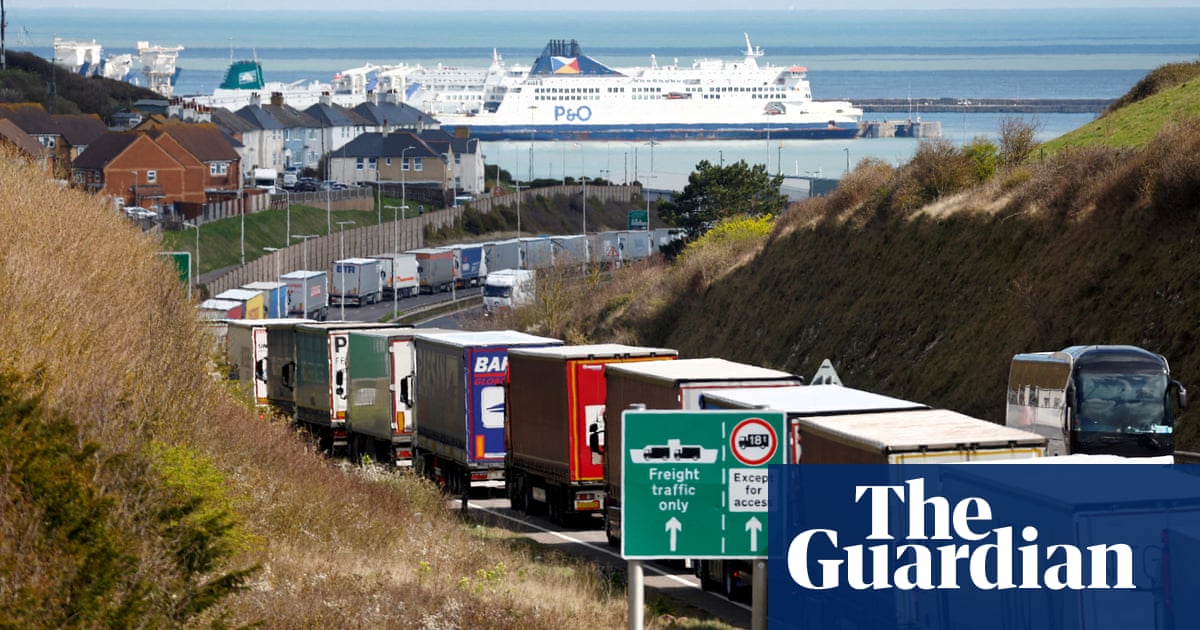
Prosecutions for crimes against women and girls in England and Wales plummeted in the first three months of the coronavirus pandemic, reflecting a backlog in the court system exacerbated by the UK-wide shutdown and subsequent social distancing measures.
The number of completed rape prosecutions more than halved, falling to 218 in the three months to June this year compared with 480 in the previous quarter, according to violence against women and girls (VAWG) figures from the Crown Prosecution Service (CPS). There were 174 convictions resulting from those 218 prosecutions, a record rate of 80%, down from 341 ( 71%) in the previous quarter.
The figures released on Thursday for April to June, covering the height of the pandemic, show the number of suspects across all crimes being charged remained broadly stable but the volume of outstanding cases soared from 109,469 to just over 170,000.
A comparative report by the Council of Europe, also released on Thursday, showed the separate jurisdictions of England and Wales as well as Scotland were among a small number of regions in Europe where overall budgets for the justice system deceased between 2016 and 2018. The backlog of pending cases had also grown significantly, by 33%, over the same period – a far worse performance than most other European states.
The backlog in employment tribunal cases in England and Wales was also growing rapidly, Citizens Advice has said. The average waiting time for tribunals to deal with unfair dismissal cases has increased to 34 weeks.
Campaigners fear that huge backlogs in magistrates and crown courts – which last month had more than 500,000 cases yet to be heard – will disproportionately hit victims of sexual violence.
The VAWG figures show that while police referred more cases of alleged domestic abuse, rape and child abuse, the volume and proportion charged by the CPS dropped, although there can be a lag between referral and charge.
“The police are to be congratulated for not now being discouraged from sending cases forward” said the victims’ commissioner, Vera Baird. “They are clearly trying to drive the CPS rather than being held back by them.”
Police referred more cases of violence against women and girls to the CPS across all crime types during the first three months of the pandemic, rising 5% to 64,007 from 61,179 in the previous quarter.
The number of rape cases referred increased by 15%, domestic abuse cases increased by 8% and child abuse cases rose by 9%. However, in the most recent quarter the volume of suspects charged (but not yet prosecuted) by the CPS across all crimes of violence against women and girls decreased by 4% from 37,403 to 35,799.
The volume of rape cases charged by the CPS decreased from 503 in the last quarter to 487 in this quarter, a fall of 3.2%.
The figures also show that one in four rape cases passed to prosecutors by police last year did not progress because of administrative issues. Cases are marked as administratively finalised when an investigation has come to a standstill following requests from prosecutors for further evidence from police. In these instances although the case is not closed, it is unlikely to go any further if prosecutors do not hear from police for three months. In the year to the end of June, 1,041 of 4,295 cases that came before prosecutors were administratively finalised, a total of 24%.
The high rate of administratively finalised cases was a concern, said Sarah Green, the director of the End Violence Against Women Coalition. “When rape cases are administratively finalised it is pretty much the end of that victim’s chance of obtaining justice,” she said.
In July, the CPS launched a five-year CPS “blueprint” for prosecuting rape and serious sexual assault, followed by updated guidance for prosecutors earlier this week. This week the CPS inspectorate published a report which revealed that less than one in five of the letters sent to victims of rape and sexual abuse by the CPS were of the “expected quality”, while almost half were found to be lacking in empathy.
Katie Russell, the spokesperson for Rape Crisis England and Wales, said while the impact of Covid-19 on trials was significant, the wider figures pointed to a system that was continuing to fail victims.
“At the heart of all of these statistics is the fact that less than 2% of people reporting these serious traumatic crimes are even getting a charge, and the vast majority of rapists and sex violence perpetrators are walking free,” she said.
The CPS said that despite innovations introduced during the pandemic, social distancing had “had a significant impact on the progression of cases” through the criminal justice system.
A spokesperson said rape and domestic abuse cases had been classified as high priority during lockdown and that the fall in charges and completed prosecutions was smaller than for other crime types.












